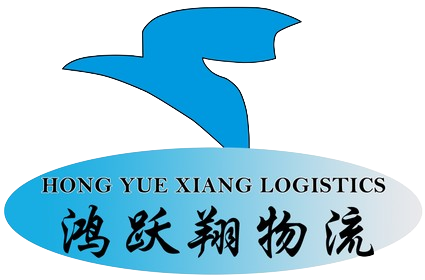News
How Professional Air Freight Companies Enhance Just-in-Time Delivery
The Critical Role of Air Freight Companies in Just-in-Time Delivery
Speed and Reliability in Global Supply Chains
How fast things move matters a lot in today's logistics world, and air freight companies really stand out when it comes to getting stuff across big distances quickly. When products need to get somewhere fast, planes beat ships hands down. Something that might take weeks by boat arrives in just a few days via air, keeping those global supply chains moving at breakneck speed. And reliability isn't just important, it's essential too. Studies show air freight actually has better on time delivery stats than most other shipping options, something manufacturers who deal with perishables or fashion trends absolutely need. Take a look at what Amazon and Dell do all the time. These giants depend on air freight to cut down wait times and keep customers happy, because nobody wants to wait forever for that new gadget or laptop part anymore.
Meeting E-commerce Demands for Rapid Shipping
E-commerce is growing at lightning speed and this has completely changed how logistics works today. We're seeing businesses rely more on air freight than ever before just to keep up with customers wanting packages delivered tomorrow or sometimes even today. Airlines and freight carriers are stepping up their game too, investing in new tech and expanding their networks across the globe. Take a look at big names like Amazon and Alibaba. These giants have built entire sections of their supply chains around air transport systems, which means products get shipped out quicker and arrive in better condition. Customers love this obviously, but what really matters here is that air freight isn't just some side note anymore it's become absolutely essential for anyone trying to compete in online retail these days.
Reducing Inventory Costs Through Timely Deliveries
When goods arrive on time via air freight, companies don't need to stockpile as much inventory, which cuts down on those expensive warehouse costs. This works really well with what's called the Just-in-Time (JIT) approach to logistics. The whole idea is about getting supplies exactly when they're needed, no earlier, no later. Some research shows that businesses switching to JIT can save quite a bit of money, especially since planes tend to stick to their schedules better than other transport methods. Look at car makers and tech firms for instance. These industries rely heavily on air shipments to keep production running smoothly without tying up capital in excess stock. The savings add up over time, making operations leaner and more responsive to market changes. Most manufacturers now see air freight not just as an option but as essential for keeping inventory expenses under control.
Advanced Technologies Powering Precision Logistics
IoT-Driven Cargo Tracking Systems
The logistics world is changing fast thanks to IoT tech that lets companies track air freight in real time. Shippers now know exactly where packages are at any given moment, which makes everyone involved more accountable during transport. When it comes to seeing through the whole supply chain, IoT really shines. Companies report fewer missing packages these days because tracking is so much better than before. Tech firms teaming up with airlines have created some pretty cool systems too. One major carrier recently rolled out smart sensors on all their planes that send constant updates about cargo location and condition. These partnerships aren't just making operations smoother, they're actually setting new benchmarks for how reliable air freight can be. Businesses finally have real power over their shipments from warehouse to destination, knowing goods will reach customers intact most of the time.
AI-Predictive Routing for Optimal Efficiency
AI is changing how we think about routing efficiency in air freight logistics thanks to its ability to process huge volumes of information. When looking at weather patterns, fuel consumption rates, and airport congestion levels, smart algorithms figure out which flight paths work best, cutting down both travel time and expenses across the board. Research shows that companies using these AI systems see improvements in their delivery windows while spending less money overall because planes aren't flying unnecessary distances or sitting idle waiting for clearance. A real world example comes from one major shipping firm that cut down transit times by nearly a third after implementing an AI based routing system last year, saving them hundreds of thousands in operational costs. For logistics managers watching every dollar closely, this kind of technology isn't just nice to have anymore it's becoming essential for staying ahead of competitors who still rely on traditional methods.
Automated Customs Clearance Solutions
Getting customs clearance right is essential for anyone shipping stuff internationally by air, but let's face it, it's a headache because every country has its own rules and paperwork requirements. That's where automation comes in handy these days. Customs processes get way faster when companies implement automated systems instead of relying on paper forms and manual checks. The numbers back this up too customs agencies report around 40% reductions in processing time with automation in place. This means cargo actually moves through borders without getting stuck waiting for someone to fill out another form. For businesses, this translates to quicker delivery times and better adherence to those complicated international regulations everyone keeps talking about. The whole supply chain runs smoother when there are fewer bottlenecks at border crossings. Companies handling sensitive items like medicine or fresh produce really appreciate this kind of flexibility, since their products often have strict time windows for delivery.
Overcoming Industry Challenges for JIT Success
Navigating Fuel Price Volatility
Air freight costs and how companies run their operations get hit hard when fuel prices jump around. When fuel goes up and down constantly, it pushes operational expenses higher, which means customers pay more for shipping and logistics firms often see thinner profit margins. Looking back at past market behavior shows a clear pattern: whenever fuel prices spike, shipping rates tend to follow suit. That's why smart businesses need to plan ahead to deal with these fuel cost swings. Some common approaches include using planes that burn less fuel, locking in fuel prices through hedging contracts, and making small changes to flight operations that cut costs over time. These kinds of strategies help airlines stay competitive while still making money, even when fuel markets remain unpredictable.
Streamlining Cross-Border Regulatory Compliance
Air freight companies face real headaches when dealing with cross border regulations because every country has its own rules about shipping goods. Customs requirements vary widely, security protocols differ, and environmental standards create additional hurdles that complicate the whole process. The good news is new tech tools are helping carriers manage all this paperwork and red tape. Some companies use smart compliance platforms that automatically check documents against different regulations, which cuts down on errors and speeds things up considerably. Logistics firms like DHL and FedEx have invested heavily in these systems lately. Their experience shows that businesses can actually move cargo faster between countries while still meeting all those complicated legal requirements.
Balancing Capacity Constraints with Demand
Air freight logistics faces major headaches when it comes to capacity limits, especially around holiday seasons or when global events cause sudden spikes in shipping needs. The numbers tell us that whenever demand jumps up, so do problems finding enough space on planes, which means longer wait times and higher prices for shippers. Many carriers now use predictive analytics software to estimate future cargo volumes while adjusting their pricing strategies based on market conditions. Logistics insiders recommend investing in good old fashioned market research alongside those fancy algorithms, plus having extra staff ready to go at short notice. Companies that keep their operations nimble and invest in smart planning tools tend to handle busy periods much better, keeping clients happy even when everyone else is scrambling for available cargo space.
Sustainability as a Competitive Advantage
Eco-Friendly Aircraft Innovations
The air freight industry is undergoing major changes as manufacturers develop greener aircraft to address growing environmental worries. Airlines are focusing on things like improved engine efficiency and lighter weight composites made from recycled materials. These changes really cut down on carbon emissions according to data collected across the aviation sector. Major players in cargo transport have jumped on board this trend, investing heavily in newer planes that help them look better environmentally while keeping pace with customer expectations for cleaner shipping methods. Companies making this switch find themselves winning over customers who care about where their goods come from and how they get there, plus saving money on fuel costs in the long run.
Carbon-Neutral Shipping Initiatives
Air freight companies around the world are getting serious about carbon neutral shipping these days to meet international sustainability targets. Many are teaming up with carbon offset organizations while pouring money into cleaner technology solutions. Look at DHL for instance, which claims to have reached carbon neutrality across its global network through various green initiatives. Customers seem to be catching on too. Recent surveys indicate growing interest in environmentally friendly shipping options when people order goods online. Going carbon neutral does cut down on pollution, sure, but it also builds brand credibility and gives businesses an advantage over competitors who haven't made similar commitments to greener operations.
Optimized Load Planning to Reduce Emissions
Getting the most out of cargo loading plans makes a big difference when it comes to lowering emissions in air freight. When planes are loaded efficiently, they burn less fuel overall, which naturally cuts back on those unwanted greenhouse gases. Some recent industry reports show that carriers who've adopted better loading techniques have seen their carbon footprints drop by quite a bit. There's also this new wave of AI based software tools coming into play now that help sort out optimal cargo arrangements. These systems aren't just fancy tech toys though; they actually work behind the scenes to let airlines make smarter decisions about how they pack their aircraft. The bottom line? Better planning means fewer emissions while still keeping costs under control. Plus, customers today really care about green initiatives, so this approach helps businesses stay competitive in an increasingly eco conscious market.
Recommended Products
Hot News
-
A Vital Freight Mode Connecting The World
2024-01-16
-
The Continued Development Of Our Freight Shipping Company
2024-01-16
-
The Importance Of A Trucking Company
2024-01-16

 EN
EN
 AR
AR
 FR
FR
 DE
DE
 PT
PT
 RU
RU
 ES
ES
 TR
TR
